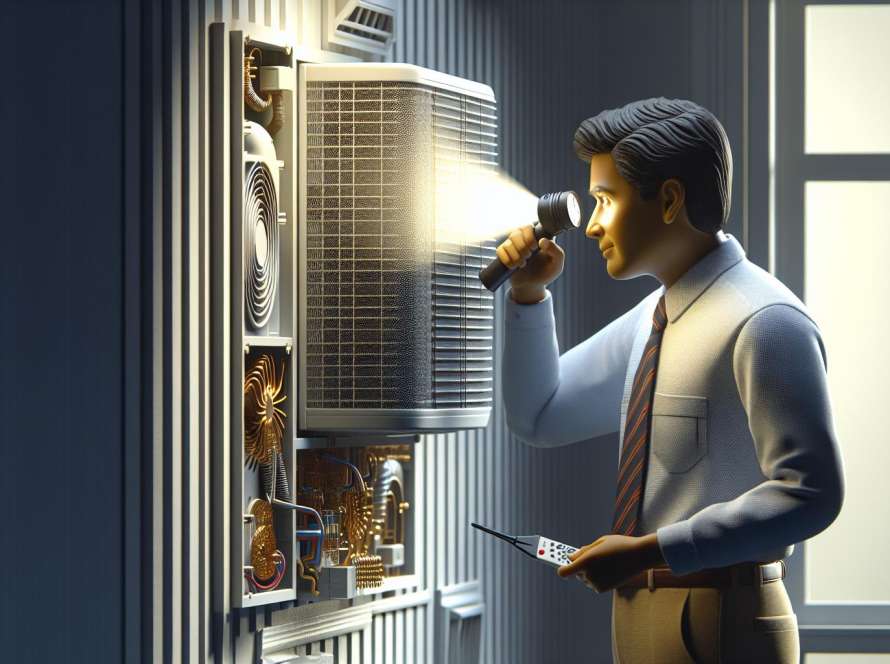So, you’re looking to keep your AC running smoothly in the Florida climate. We all know how essential a well-functioning air conditioner is when the heat and humidity hit hard. Proper maintenance is the key to ensuring your AC performs efficiently and effectively, especially in a state like Florida where the demand for cooling is high.
Regular upkeep not only extends the lifespan of your AC unit but also helps in maximizing its energy efficiency. From changing filters to scheduling professional tune-ups, there are several steps we can take to ensure our AC system is in top shape. In this article, we’ll explore some expert tips and tricks to help you keep your AC running efficiently in the Florida climate.
Importance of AC Maintenance in Florida Climate
In Florida’s humid climate, regular maintenance of your air conditioner is crucial to ensure optimal performance. Let’s delve into why AC upkeep is paramount for efficiency:
For Beginners: Getting Started
- Change air filters every 1-3 months to maintain proper airflow.
- Clean vents and ducts to prevent dust and debris buildup.
- Schedule professional tune-ups annually to detect and fix potential issues early.
For Intermediate Users: Enhancing Efficiency
- Install a programmable thermostat for energy-saving temperature control.
- Ensure proper insulation to reduce energy waste and improve cooling efficiency.
- Regularly check refrigerant levels to prevent system strain.
- Inspect and clean evaporator and condenser coils for optimal heat transfer.
- Consider upgrading to a high-efficiency unit for long-term cost savings.
- Implement zoning systems for personalized cooling in different areas.
In a climate like Florida’s, proactive AC maintenance not only maximizes efficiency but also extends the lifespan of your unit. Regular upkeep is the key to enjoying a cool and comfortable indoor environment year-round.
Changing Filters: A Crucial Step for Efficiency

Maintaining air conditioner filters is paramount for optimal performance in Florida’s humid climate. Let’s dive into the importance of this task for various experience levels:
For Beginners: Mastering the Basics
- Changing filters is a simple yet vital task.
- Ensure filters are replaced regularly to prevent clogs and maintain healthy air quality.
- A clean filter promotes better airflow, leading to improved efficiency.
For Intermediate DIY Enthusiasts: Enhancing Your AC Unit
- Consider upgrading to high-efficiency filters for enhanced filtration.
- Set a reminder to replace filters every 1-3 months depending on usage.
- Use a vacuum attachment to remove dust from the filter’s surface before replacement.
- Inspect filters for debris build-up and mold growth periodically.
- Invest in permanent filters that can be cleaned and reused.
- For larger properties, explore electrostatic filters for superior air filtration.
By staying proactive in filter maintenance, you not only ensure optimal AC performance but also extend the lifespan of your unit. Remember, a small effort goes a long way in keeping your indoor environment comfortable throughout the year.
Schedule Professional Tune-Ups Regularly
When it comes to keeping your AC running smoothly in the Florida climate, scheduling professional tune-ups is key. Regular maintenance by an HVAC technician can ensure optimal performance and extend the lifespan of your air conditioner.
For Beginners: Setting a Solid Foundation
- Book an annual maintenance appointment with a reputable HVAC company.
- Learn about the basic components of your AC system during the technician’s visit.
- Ask questions to understand how your system works and what maintenance tasks are essential.
For Intermediate Homeowners: Taking It Up a Notch
- Consider enrolling in a maintenance plan for regular service visits.
- Review the technician’s recommendations for any necessary repairs or upgrades.
- Keep a record of past maintenance visits to track the health of your system over time.
- Invest in a high-efficiency air conditioner for maximum energy savings.
- Discuss advanced maintenance options with your technician, such as duct cleaning or sealing.
- Explore smart thermostat integration to enhance your AC’s performance.
Regular professional tune-ups are a vital part of AC upkeep in the Florida climate. By entrusting your system to skilled professionals, you can ensure that it continues to operate efficiently, keeping your indoor environment comfortable year-round.
Optimal Temperature Settings for Efficiency
For Beginners: Setting a Foundation
- Start by programming your thermostat to 78°F when you’re at home to balance comfort and energy savings.
- When away, increase the temperature by 7-10 degrees to reduce energy usage.
For Intermediate Homeowners: Fine-Tuning for Savings
- Consider smart thermostats that can automate temperature adjustments for increased efficiency.
- Aim for a temperature differential of 4-5 degrees between indoor and outdoor temperatures.
- Utilize zoning systems to control temperatures in different areas of your home for customized comfort and efficiency.
- Keep indoor humidity levels between 40%-60% for optimal comfort and energy savings.
| Temperature Recommendations |
|---|
| Recommended Temperature when at home: |
| Recommended Temperature when away: |
| Temperature differential for efficiency: |
| Indoor humidity levels: |
Enhancing Energy Efficiency with Proper Insulation

For Beginners: Understanding the Basics
- Start by checking insulation in your attic and walls.
- Consider adding weather stripping around doors and windows.
- Use curtains and blinds to help regulate indoor temperature.
For Intermediate Homeowners: Improving Insulation Techniques
- Upgrade to energy-efficient windows to reduce heat transfer.
- Seal ducts to prevent air leaks and enhance HVAC efficiency.
- Add insulation to crawl spaces and basement walls for better temperature control.
- Opt for spray foam insulation for maximum coverage and sealing.
- Explore radiant barriers to reflect heat away from your home.
- Invest in insulated siding for comprehensive thermal protection.
| Energy Efficiency Data |
|---|
| Upgrading windows: Decreases energy loss by 10-20%. |
| Sealing ducts: Improves HVAC efficiency by up to 30%. |
| Adding insulation: Reduces heating and cooling costs by 15%. |
Conclusion
Ensuring proper insulation and implementing energy-efficient practices are key to optimizing air conditioning efficiency in Florida. From basic steps like checking insulation and using weather stripping to advanced techniques such as spray foam insulation and radiant barriers, there are various options available for homeowners at every level. Upgrading windows, sealing ducts, and insulating crawl spaces can significantly impact energy loss and HVAC efficiency. By following these guidelines, Florida residents can not only enhance the performance of their AC systems but also reduce heating and cooling costs. Making these adjustments can lead to a more comfortable indoor environment while also contributing to a greener and more sustainable future for all of us.

